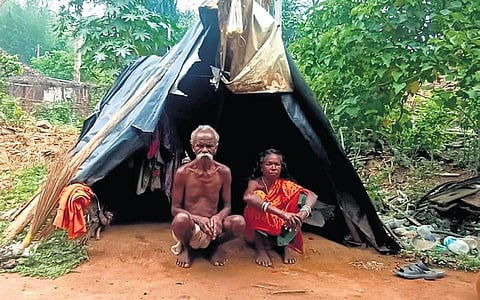

DINDIGUL: Around 900 beneficiaries under the Kalaignarin Kanavu Illam (KKI) do not have patta land in Dindigul district. Tribals who have been selected as beneficiaries have sought housing sites near their habitat, as their livelihood depends on the Sirumalai forest area.
According to official records, around 4,095 beneficiaries were selected and deemed eligible for construction of houses under the KKI, but around 989 beneficiaries do not own patta land.
Sources said that in an effort to eradicate poverty and improve standard of living in rural areas, the state government had introduced the scheme. Finance Minister Thangam Thennarasu announced the scheme on February 19, 2024, aiming to replace huts with concrete homes across rural Tamil Nadu by 2030.
Tamil Nadu Hill Tribes Association (Dindigul) secretary T Ajay Gosh said, "Based on the scheme, minimum plinth area of the house will be 360 sq ft, which includes a kitchen, built at a cost of Rs 3.5 lakh. Beneficiaries have been selected under this scheme, provided they possess patta land or ownership documents for the site.
Besides, in some cases, land is also provided to the beneficiaries, but since they are from poor families they should be allocated land within 2 km. For example, many individual families from the Paliyar tribe community are selected as beneficiaries. They live near Sirumalai forest areas such as Vattakadu and Thozhukadu. They move inside the forest for obtaining honey and forest wood. If they are provided a housing site, which is more than 3 km away, their livelihood would be affected."
Speaking to TNIE, an official from District Rural Development Agency (DRDA) said, "We are aware that all beneficiaries are from poor family backgrounds and some of them are daily wagers with inconsistent earnings. Their jobs depend on the location. During the initial survey for the KKI scheme, we found these beneficiaries are without land. But the actual numbers could be more. However, these beneficiaries will be considered and their land will be chosen within their revenue block. They will not be left out and we will assign prospective land near their current habitat."